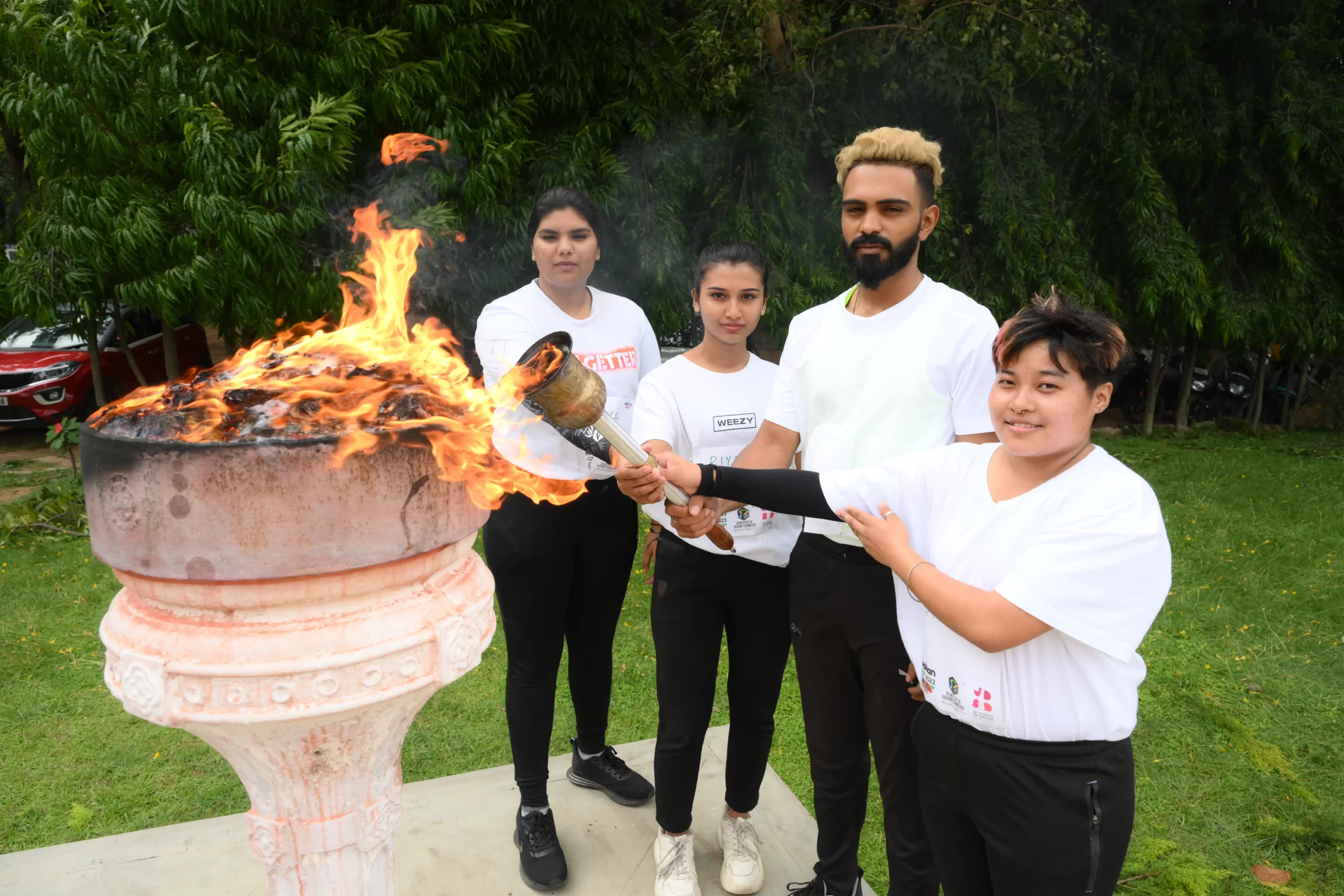The Significance of Extra-Curricular Activities: Nurturing Well-Rounded Students for a Bright Future
- Extra-Curricular Activities
The Significance of Extra-Curricular Activities: Nurturing Well-Rounded Students for a Bright Future
Contact us
Bengaluru
Campus 1 : JD School of Design, No. 18-1, Brigade Road, Bengaluru,Karnataka – 560 001.
Campus 2 : No. 40, Swan House, 4th Cross, Residency Road, Bengaluru, Karnataka – 560001.
Goa
Musthtifund Saunstha , Near Mahalaxmi Temple,Dada Vaidya Road, Goa-403001
In today’s fast-paced and competitive world, a well-rounded education goes beyond academic excellence. As the educational landscape continues to evolve, it has become increasingly apparent that extra-curricular activities play a crucial role in shaping students into confident, skilled, and adaptable individuals. At JD School of Design powered by JD Institute of Fashion Technology, prioritizing and organizing extra-curricular activities such as sports, talent shows, and other enrichment programs hold immense value in nurturing the holistic development of students. In this article, we explore the reasons why these activities are vital for students in the modern era and how they benefit from their participation.

- Balancing Academics and Extracurriculars:
Excessive focus solely on academics can lead to burnout and hinder a student’s overall growth. Extra-curricular activities offer a refreshing break from the rigorous academic routine, enabling students to develop skills, hobbies, and interests outside of the classroom. Engaging in sports, arts, or community service can help strike a balance between studies and relaxation, leading to improved academic performance and a more well-rounded personality.

- Building Social Skills and Teamwork:
Participating in team-based extra-curricular activities fosters valuable social skills and promotes teamwork. Students learn to collaborate, communicate effectively, and respect diverse perspectives while working towards common goals. These skills are transferable to real-life scenarios, enhancing their ability to thrive in the professional world.
- Enhancing Leadership and Responsibility:
Many extra-curricular activities provide students with opportunities to take on leadership roles. Whether it’s captaining a sports team, directing a play, or organizing a charity event, these experiences instill a sense of responsibility and accountability in students. Learning to lead and manage teams at a young age empowers students to become confident leaders in their future endeavors.

- Boosting Self-Confidence and Self-Esteem:
Participating in extra-curricular activities allows students to discover their talents, passions, and strengths. As they receive recognition and appreciation for their efforts, their self-confidence and self-esteem receive a significant boost. This newfound belief in their abilities translates into greater resilience and courage to take on challenges, both inside and outside the classroom.

- Developing Time Management and Discipline:
Balancing academics, extracurricular commitments, and personal life requires effective time management and discipline. By engaging in extra-curricular activities, students learn to prioritize tasks, meet deadlines, and allocate time efficiently. These crucial life skills become invaluable assets as they transition into higher education and later, the professional world.
- Encouraging Physical and Mental Well-being:
Sports and physical activities contribute to maintaining a healthy lifestyle, promoting physical fitness, and reducing stress levels. A healthy body leads to a healthy mind, making students more receptive to learning and better equipped to handle academic challenges.

- Cultivating Creativity and Innovation:
Participation in talent shows, arts, and creative workshops stimulates the students’ imagination and creativity. These activities provide a platform for students to express themselves, think outside the box, and explore innovative ideas, which are essential skills in an increasingly innovative and dynamic global environment.
In conclusion, extra-curricular activities are not just an add-on to academic education but an integral part of nurturing well-rounded students. As educational institutes, it is our responsibility to recognize the immense benefits these activities offer and create ample opportunities for students to participate in them. By doing so, we empower our students to become confident, empathetic, and adaptable individuals who can thrive in the face of challenges and contribute positively to society. Embracing the significance of extra-curricular activities paves the way for a brighter and more promising future for the leaders of tomorrow.
